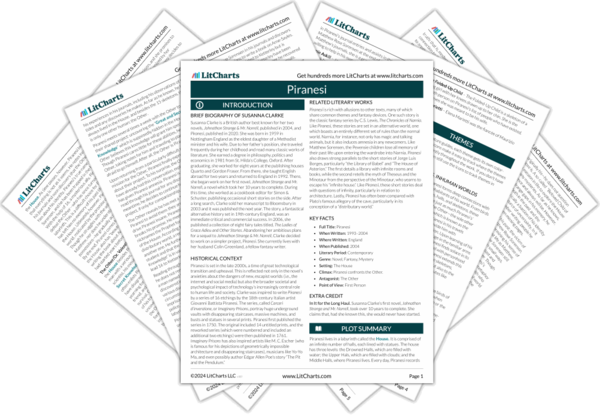Even within the fantastical context of the House, Piranesi’s experience in the First Vestibule is strange, particularly given his uncanny feeling of connection to the vestibule. To the reader, at least, it is clear by now that there are portions of Piranesi’s past which he has forgotten, and moments like not only reinforce this hypothesis, but provide hints about what knowledge Piranesi may have lost. Here, for instance, Piranesi seems to have stumbled upon a kind a portal, albeit a fading one. This opens the possibility that Piranesi may not originally have belonged to this world.
